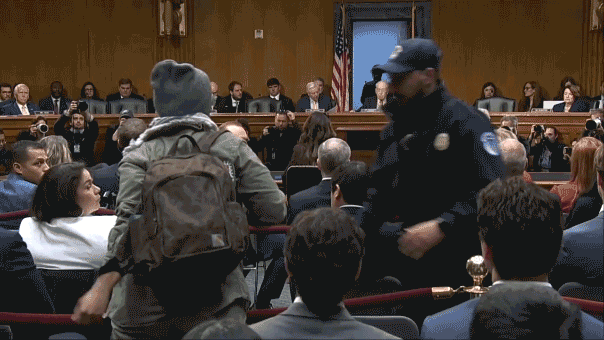Buttigieg narrowly leads Sanders in Iowa caucuses with 97% of precincts reporting
Iowa Democratic Party officials reveal new details on delay in caucus results; Reaction and analysis from Fox News Decision Desk Director Arnon Mishkin.
Democratic National Committee Chairman Tom Perez is increasingly finding himself at the center of a political storm over the fallout from this week’s botched Iowa caucuses.
The Iowa state Democratic Party has absorbed the bulk of the political blows over their mishandling of Monday’s caucuses—which resulted in a severe delay in results and lingering questions over who actually won the contest.
But Perez stirred a controversy of his own Thursday by calling for a recanvass, just as the final chunk of results was being reported. Perez said a recount was needed to “assure public confidence” after three days of apparent technical issues, vote-counting irregularities and delays.
“Enough is enough,” Perez wrote on Twitter Thursday. “In light of the problems that have emerged in the implementation of the delegate selection plan and in order to assure public confidence in the results, I am calling on the Iowa Democratic Party to immediately begin a recanvass.”
The late-breaking statement led to a backlash from some Democrats.
“Where is Tom?” Washington state Democrat chair Tina Podlodowski told Politico. “It was very frustrating to not hear from the DNC for 48 hours, except for them throwing Troy under the bus.” Troy Price is the head of the Iowa party who apologized after tech issues and other problems were linked to their inability to report results on caucus night.
In turn, the move kicked up long-lingering resentment from Sen. Bernie Sanders’ campaign and allies toward the party. Sanders himself seemed to bristle at the call, coming as updated returns showed him gaining on former South Bend, Indiana Mayor Pete Buttigieg.
“What this whole episode shows is what a hollowed-out core the Democratic political establishment is,” Neil Sroka, a strategist for Democracy for America, which is supportive of Sanders’ campaign, told The Hill. “The conspiracy theories are obviously wrong. This can be explained by rank incompetence.”
He added: “But progressives are winning despite one hand often being tied behind our back. When they can’t even run a caucus properly, the calls for change could never be more obviously needed.”
Some have even called for Perez’s resignation amid the chaos.
“Oh yeah,” Rep. Marcia Fudge, D-Ohio, told Politico when asked whether Perez should step down. “We’re a party in chaos.”
The DNC did not immediately respond to Fox News’ request for comment about calls for Perez’s resignation.
Perez on Tuesday had publicly rebuked the management of the Iowa caucuses, saying the chaos surrounding the first nominating contest of 2020 “should never happen again.” Perez said that he dedicated DNC staff to “assist the Iowa Democratic Party to ensure that all votes are counted,” and tried to allay fears that a similar situation could be in store for the upcoming Nevada caucuses on Feb. 22.
“It is clear that the app in question did not function properly,” Perez said of the app used to record votes in Iowa. “It will not be used in Nevada or anywhere else during the primary election process.”
He added Tuesday that his “immediate goal” was to “ensure that every vote is counted as quickly as possible.”
“Accuracy is our guidepost,” he said, just days before calling for a recanvassing.
IOWA CAUCUS BREAKDOWN RENEWS SCRUTINY OF STATE'S CHERISHED POLITICAL STATUS
But those calls came as the Iowa Democratic Party announced the final chunk of results from Monday’s contest.
By late Thursday, the Iowa Democratic Party announced that “100 percent” of precincts were finally reporting results—72 hours after the caucuses concluded.
The state party’s numbers showed that Buttigieg would be awarded 564 SDEs, or state delegate equivalents, while Sanders would receive 562 SDEs.
But Sanders held a sizeable popular vote lead and finished ahead of Buttigieg by a 43,671 to 37,557 vote margin. Sanders fell behind in delegates due to Iowa’s unusual voting system that gave different delegate weights to different precincts.
After the "second alignment" -- meaning the popular vote after the elimination of candidates who received less than 15 percent of the vote in the first round of caucusing -- Sanders was still ahead of Buttigieg, 45,826 votes to 43,195.
Both candidates ended up claiming they won.
Sanders’ campaign on Thursday declared victory, despite technically losing to Buttigieg on the delegate count.
“Tonight’s release of data by the Iowa Democratic Party confirms Sen. Bernie Sanders won the Iowa caucus,” Sanders senior adviser Jeff Weaver said in a statement Thursday. “Given the rules changes we fought for that required the release of the popular vote count, SDEs are now an antiquated and meaningless metric for deciding the winner of the Iowa caucus.”
Meanwhile, while campaigning in Iowa Thursday, Sanders called the Iowa Democratic Party’s management of the caucuses a “screw-up” that has been “extremely unfair” to the candidates and their supporters.
“We’ve got enough of Iowa,” he said during a CNN town hall, just before Buttigieg spoke. “I think we should move onto New Hampshire.”
Fox News' Gregg Re and The Associated Press contributed to this report.












































